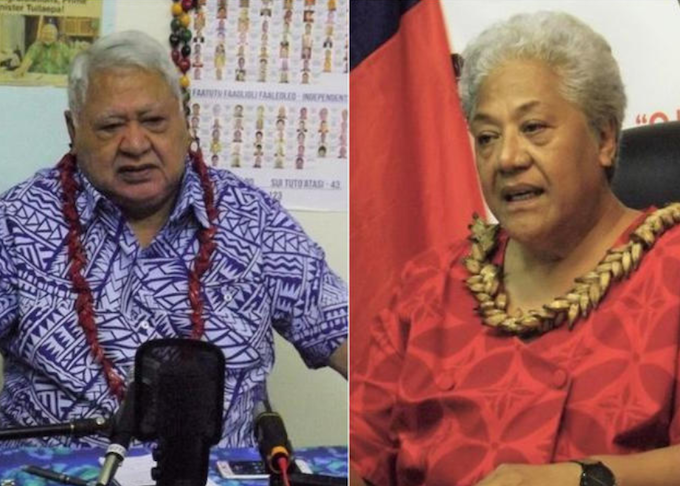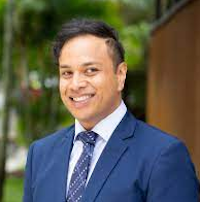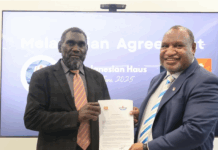
After 23 years with one political party and one prime minister in charge, Samoa’s general election last month delivered a surprise neck-and-neck result. But it was barely reported in most national media outlets here. How come? And what might improve the situation?
For a while, it seemed like Prince Philip’s death was the only news story in the world.
On Saturday, April 10, TVNZ’s 1News set aside the first 40 minutes of its 6pm bulletin for it – after which even the sports news dutifully noted his connection to New Zealand yachting.
The Herald, Stuff, RNZ, and Newshub also gave the Prince blanket coverage.
Not everyone was happy with the media’s dedication to the story. In the UK, the BBC had to set up a dedicated form on its website to handle the 100,000 complaints it received over its coverage.
Audiences in Aotearoa weren’t unanimously overjoyed with our newsrooms’ focus on the Prince either.
There were predictable complaints from republicans, but as the weekend wore on more people pointed out the disparity between the coverage of the prince’s death and the Samoan election.

For nearly two days, RNZ was the only major New Zealand news website carrying information about the election results, and analysis of the outcome. Its coverage was carried out by RNZ Pacific, which has a team dedicated to reporting and broadcasting Pacific news and issues across the region.
Hayden Donnell of RNZ Mediawatch talked to Auckland University Pacific studies lecturer Seuta’afili Dr Patrick Thomsen in the wake of the April 9 election and before a fresh ballot due on May 21 (pending court challenges). Here is the transcript of the interview:
Monumental result
Besides the obvious fact that it is a significant political event in one of our closest neighbouring countries, can you explain why this particular Samoan election is so newsworthy and historic?
Since 1982 the Human Rights Protection Party (HRPP) has been in power and the current Prime Minister, Tuilaepa Sa’ilele Malielegaoi, has been prime minister since 1998. There has been almost four decades of continuity in terms of the political leadership of Samoa, and in 12 to 18 months the current government has seen its stranglehold over power unravel. That goes back to the measles epidemic, I think. There was a lot of discontent in Samoa over the way the government handled that. It’s very monumental that we’ve had a political party [opposition FAST Party led by Fiame Naomi Mata’afa] come through so quickly within 12 months to challenge the status quo in many different ways.
It is a dead heat right? It’s 25-all with an independent seat that will decide the election so it couldn’t be more of a cliffhanger [the independent seat and a controversial sixth women’s seat created a 26-all dead heat before the Head of State called a new election on May 21]. You tweeted that you didn’t understand why the New Zealand media pretty much wasn’t covering the election especially in our two biggest websites, Stuff and The New Zealand Herald.
Samoa’s election result still sit on a knife edge. I don’t understand why NZ media aren’t running more in-depth stories about this considering our “connections” to Samoa. The numbers are truly astonishing! https://t.co/FP2faXaGuL
— Patrick Thomsen (@_PatrickThomsen) April 11, 2021
I think about the conversations we’ve been having recently about the lack of Pacific representation in our newsrooms, but I’d go further to also ask ourselves as a country, whose knowledge and whose communities do we value more? And then we can start to think about why our journalists chose to specifically focus on Prince Philip’s death. That was a momentous occasion for New Zealand as a former British colony, so if we have predominantly Pākehā men on our airwaves there will be things that will be emphasised from those particular perspectives.
We’re almost putting the cart before the horse here. We’re asking why the media isn’t covering a Samoan election. Is it that we’re asking them to do this but maybe they’re not even necessarily connected to Samoan and wider Pasifika communities just down the road from them?
Absolutely. I grew up in South Auckland among the Samoan community, which was very connected, and we had our own forms of media. Radio 531pi, which is now the Pacific Media Network, but the only people who are covering our communities are ourselves, so that begs the question around who we value in this country. Why is it our journalists don’t feel comfortable, or don’t have connections to Pacific communities. There’s a bigger question there.
On the subject of commercial media. They’ll say “these stories aren’t being consumed by our audience as much as a story on Prince Philip’s death”. There are 120,000 Samoan people in Auckland, 200,000 in New Zealand, is it a sign that market has disengaged from some of these mainstream sources like the Herald or Stuff?
I think you’ve hit the nail on the head there. I think our communities have disengaged with a lot of these mainstream publications, especially the mainstream outlets specifically because the stories they do report on are quite hyper-sensationalised and they’re not exactly the most flattering stories. A lot of them will depict a lot of the problems within our community as a way in which they can engage their readership, because they have specific readership and we’re not that readership, and I think this also ties to the fact that our communities here in New Zealand generally are marginalised and experience social and economic deprivation in a way that prevents them from being an audience that these commercial outlets would want to pitch to. They can’t make any money off us in their point of view.
But that’s not necessarily true, is it? There are organisations that do serve Pasifika people. It’s not an impossible market to target if you actually have a connection to it?
If you focus on one thing, you tend to miss others, right? And so these commercial outlets probably won’t see the Pacific audience until someone demonstrates the value they can provide for the outlet. For a broadcaster like RNZ that has a mandate that’s sort of broader, it gives you an opportunity to think about this.
A lot of the coverage there was in organisations like Stuff or the Herald or Newshub was actually published through a content sharing agreement with RNZ, so it was RNZ Pacific’s content. Are you worried that these content sharing agreements that RNZ has set up with these media organisations might mean they’ll opt out of doing their own coverage of the Pacific.
It does give a mechanism for organisations to put it in the too hard basket. It’s great that RNZ is willing to share its content but then the Samoan election — we’re using this as an example — there is of course the surface-level reporting you can do where you can just report on what actually happened, but in terms of the different impacts this will have on the different facets of Samoan society, that sort of in-depth reporting goes missing. Having those share agreements in place really removes the incentive for these outlets to seek out those really differing perspectives, that depth, the things that will help generate understanding among its readership of a community. So we’ve got to be careful it doesn’t allow media outlets — even if you’re a commercial entity you have a responsibility to the public in a way other enterprises don’t — it allows them to vacate that social responsibility.
You pointed to TVNZ’s Breakfast as an organisation that got things right. Why do you think things were so different there?
I think it’s because of the efforts of John Campbell and his team. He’s taken the time to come and speak and listen to many people in our community. He’s also advocated for the recruitment of Pacific presenters and staff members within the Breakfast team, so his relationship is one that’s backed by action, which is why he’s respected among Pacific communities. Though there are times that I’ve disagreed with some of the things that he’s covered, it’s always come from a place of understand that our communities are on the same level as he is. He doesn’t assume anything about us, he really tries to understand and listen, and I do know he was instrumental in helping to shape positions for Pacific and Māori women within his team. So structurally there’s a problem, but there are things that we can do as individuals if we are in positions of power.
We’ve also lost a lot of our Samoan language publications and organisations in the last year. The Samoa Times was shut down in June. The Pacific Media Centre is going through a lot of upheaval after the retirement of its leader David Robie. How much of an impact do you think these things had on the lack of coverage of the Samoan election?
When I was young there were a few more Samoan newspapers but the majority of those newspapers were written in Samoan, which is important for the continuation of the language but we do know there are a lot of youngsters in New Zealand who can’t speak Samoan. So they wouldn’t have been able to access a lot of those newspaper articles. The type of political analysis which is quite sophisticated which are written in those newspapers — the type of thing we’d like to see written in the newspapers in this country — there are outlets locally in Samoa that provide that like the Samoa Observer that have a bunch of talented local journalists. It might be developing those relationships with regional outlets, rather than just developing what we are missing here. Our relationship to the Pacific is something that needs to be cultivated here.
If someone put you in charge of Pacific media coverage in New Zealand, what are the big changes you would make?
I would actually go and talk to our communities first and foremost. Pacific ways of doing things means you go back to your communities and you find out what they want, and what they need. Personally the arm of RNZ that looks at the Pacific in particular, I would resource that a lot more. I would institute an internship programme that targets journalists that want to do work in the Pacific, and I’d have Pacific journalists and lecturers be the ones that come in and help to develop that. A third thing I’d do is develop or work with specific training organisations to have a specific training model instituted so reporters are more sensitised to what it means to work and report on Pacific communities.
EDITORIAL: The nation has been plunged into a constitutional crisis and the caretaker Prime Minister has shown himself to be utterly incapable of solving it in a constitutional fashion. https://t.co/2Q3oreXIlN
— Samoa Observer (@samoaobserver) May 12, 2021
This article is republished under a community partnership agreement with RNZ.












































